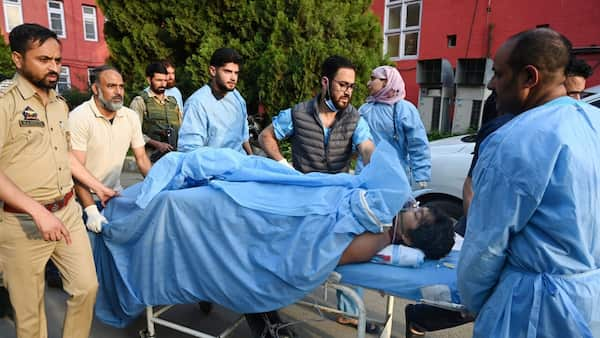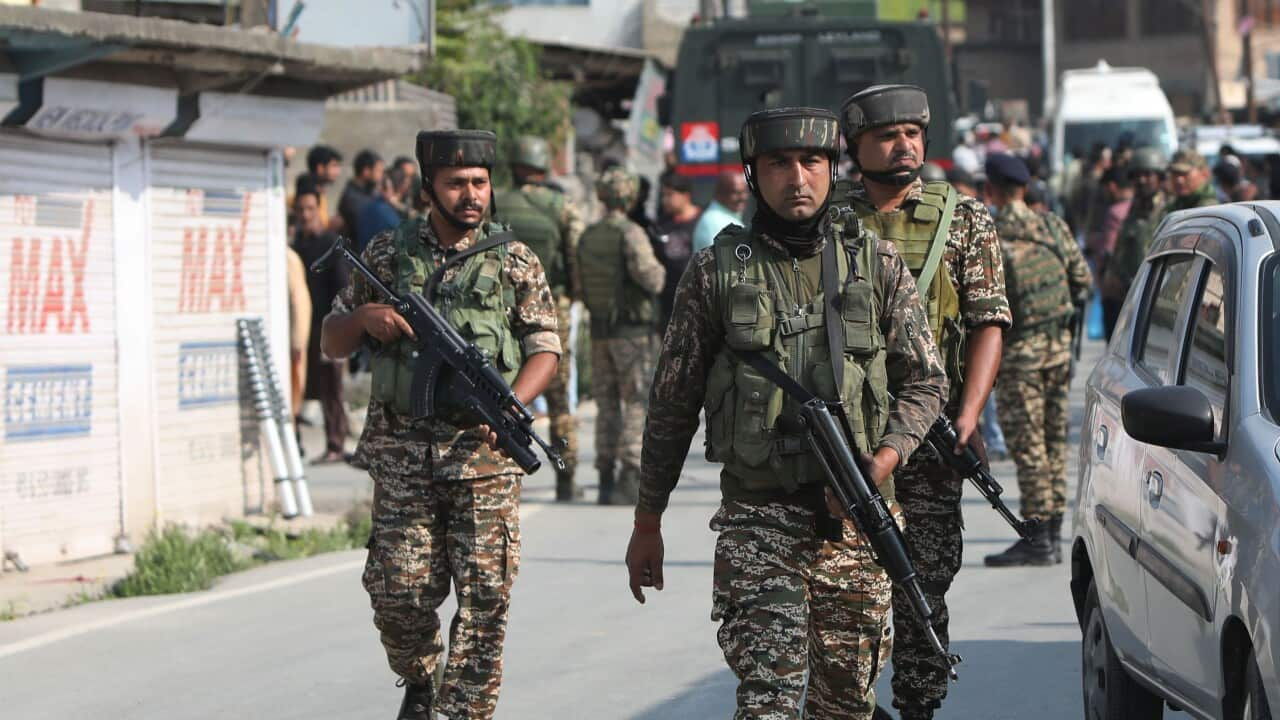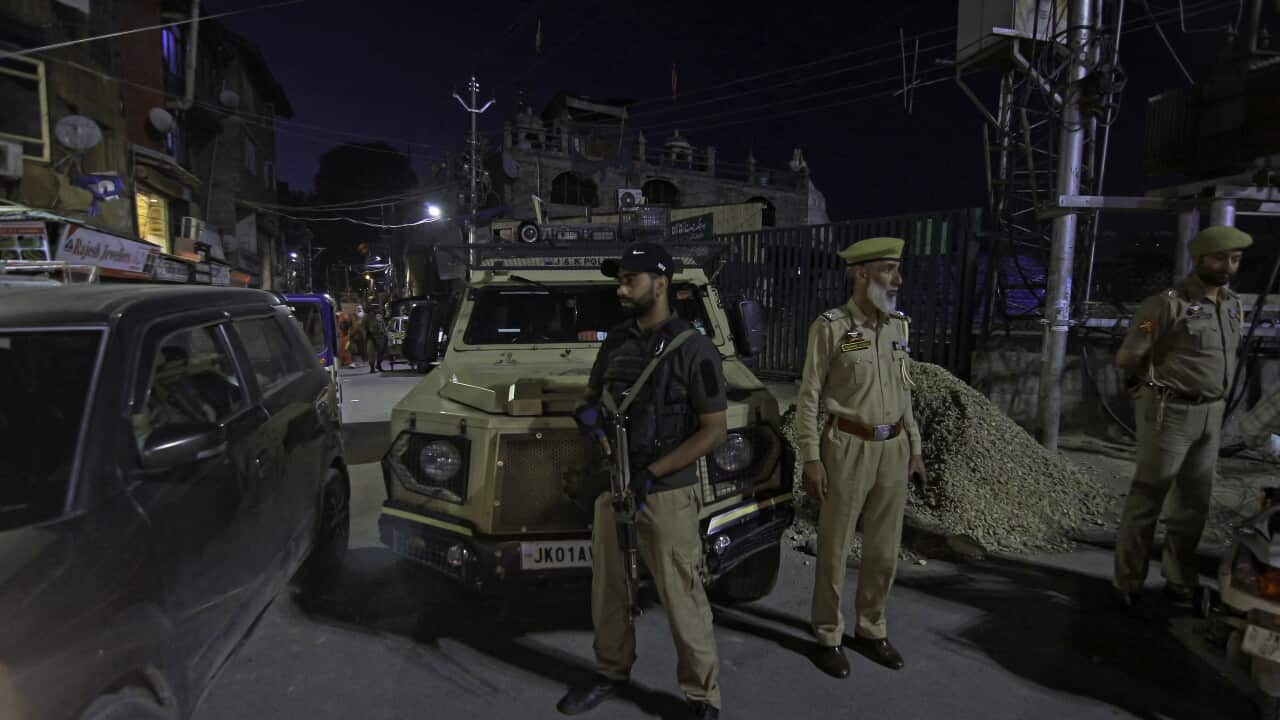Australians are being advised to exercise a "high degree of caution" in India and reconsider travelling to Pakistan, after India attacked nine sites in Pakistan and Pakistan-administered Kashmir.
Eight deaths were reported on Wednesday, as the worst fighting in years erupted between the longstanding enemies. Pakistan called the assault a "blatant act of war".
Australia's Smartraveller website has updated its travel advice, recommending visitors to "exercise a high degree of caution" in India overall, with higher levels applying in some areas.
"Due to the current security situation between Pakistan and India, we recommend you monitor local media for updates, stay alert, take official warnings seriously and follow the advice of local authorities," Smartraveller recommends.
"We continue to advise do not travel to the Union Territory of Jammu and Kashmir, the entire India-Pakistan border, or Manipur."
Visitors are being urged to reconsider their need to travel to Pakistan entirely.
Here's what we know so far.
What happened?
On Wednesday morning, Indian forces attacked nine sites in Pakistan and Pakistan-administered Kashmir in a major escalation of tensions.
The Indian government said its armed forces had launched "Operation Sindoor", where it had targeted "terrorist infrastructure in Pakistan and Pakistan-occupied Jammu and Kashmir from where terrorist attacks in India have been planned and directed".
"Our actions have been focused, measured and non-escalatory in nature. No Pakistani military facilities have been targeted. India has demonstrated considerable restraint in selection of targets and method of execution," it said.
At least 26 people have been killed, including a child. An additional 46 people have been injured, according to a Pakistani military spokesperson.
"They have targeted multiple locations, which all are civilian," Pakistan's defence minister Khawaja Muhammad Asif told the AFP news agency.
Asif also told Reuters five Indian planes have been shot down and there was an "exchange of fire" with Indian troops at multiple locations along the Line of Control in Kashmir.
The Indian army said three Indian civilians have been killed in shelling by Pakistani troops.
"In an unprovoked and blatant act of war," Indian fighter jets remained in Indian airspace but "violated Pakistan's sovereignty using standoff weapons, targeting civilian population", the Pakistani foreign ministry said.
After the explosions, power was blacked out in Muzaffarabad, the capital of Pakistan-administered Kashmir, witnesses said.

The development comes amid heightened tensions between the nuclear-armed neighbours in the aftermath of an attack on Hindu tourists in Indian-administered Kashmir last month. Source: AAP / Middle East Images
How has Pakistan responded?
Pakistan has condemned the attack and vowed retaliation.
A spokesperson for Pakistan's military told broadcaster ARY, India had attacked Pakistan with missiles in three places and that Pakistan would respond.
"We will retaliate at the time of our choosing," said Pakistani military spokesperson Lieutenant-General Ahmed Sharif Chaudhry, calling the strikes a "heinous provocation".
A Pakistani military spokesperson later told Reuters that in six locations, 24 impacts had occurred using different weapons.
Another military spokesperson said that two mosques had been struck.
Sharif issued a statement, warning a "resolute response" was underway.
"The treacherous enemy has launched a cowardly attack on five locations within Pakistan. This heinous act of aggression will not go unpunished," the statement read.
"Pakistan reserves the absolute right to respond decisively to this unprovoked Indian attack — a resolute response is already underway," Sharif said in a statement.
Asif said India had launched missiles at Pakistan from within its own airspace.
He also said India's claim of "targeting terrorist camps" was false, and that the strikes hit civilian areas.
Pakistani military said three locations were hit by the airstrikes — including Muzaffarabad and Kotli in Pakistan-administered Kashmir, and Bahawalpur.
LISTEN TO

Dozens of tourists gunned down in disputed region of Kashmir
SBS News
05:25
Escalating tensions
The strikes come amid growing tensions between the nuclear-armed neighbours in the aftermath of an .
Militants opened fire on tourists in the resort town of Pahalgam, killing at least 26 people.
Some survivors said the gunmen specifically targeted Hindu men. Indian police say two of the four militants they suspect behind the attack were Pakistani citizens, with India blaming Pakistan for the attack.
Pakistan has denied any involvement, with Sharif calling for a transparent, credible and neutral investigation into the attack. He also urged the US to impress upon India to "dial down the rhetoric and act responsibly".
UN urges both countries to exercise 'maximum military restraint'
The strikes are a major escalation in the long-standing conflict between India and Pakistan.
United Nations secretary-general António Guterres expressed his concern, calling for maximum military restraint from the two countries.
"The secretary-general is very concerned about the Indian military operations across the Line of Control and the international border. He calls for maximum military restraint from both countries," the spokesperson said.
"The world cannot afford a military confrontation between India and Pakistan."
United States President Donald Trump called the situation "a shame" and said: "I hope it ends quickly."
— With reporting by Agence France-Presse and Reuters news agencies.



